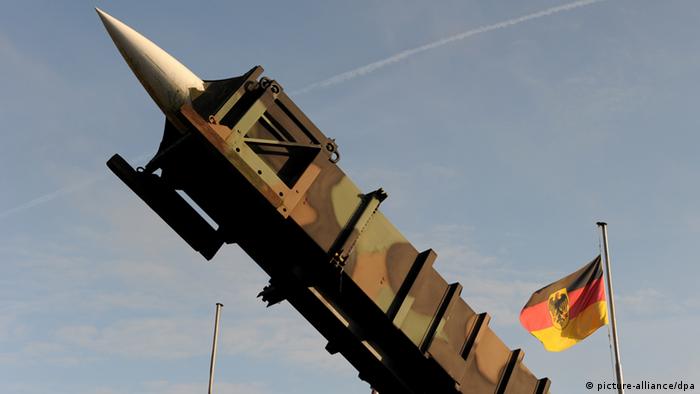Russia has said it opposes the potential deployment of NATO missiles in Turkey. Proponents say the move could help secure Turkey's border with Syria, currently embroiled in civil war.
Russian Foreign Ministry spokesman Alexander Lukashevich voiced Moscow's concern over NATO's possible deployment of Patriot missiles near the Turkey-Syria border Thursday, saying it "would not foster stability in the region."
Lukashevich added that "the militarization of the Turkish-Syrian border is an alarming signal."
Turkey had earlier asked NATO to deploy the missiles in response to the Syrian shelling of border towns in recent months. Turkey has repeatedly scrambled fighter jets in response to the shelling, which stems from the Syrian civil war that has killed some 38,000 people since the uprising against President Bashar Assad began in March 2011.
Discussing the proposal
NATO ambassadors met on Wednesday to discuss Turkey's request after weeks of talks between the two sides. Turkey sees the move as a way to strengthen security along its 560-mile (900-kilometer) border with Syria.
German Foreign Minister Guido Westerwelle affirmed his support of Turkey's wish to defend itself.
"It would be a serious mistake if we were to refuse defensive support to a NATO member country in a moment when this member country feels that it is exposed to attacks from outside," said Westerwelle.
France's Foreign Minister Laurent Fabius said Thursday in Paris that his country supported Turkey's request.
"There is no reason to object, it is purely defensive," he told BFM TV.
Only three NATO members - Germany, the Netherlands and the United States - have Patriot missile capabilities. German parliament is expected to decide in December whether to send troops to the Turkish border as part of the missile deployment.
Moscow objects
The plans could threaten NATO's already stressful relationship with Russia.
"Our advice to Turkish colleagues consists of something else entirely: to use its potential influence on the Syrian opposition to seek the start of an inter-Syrian dialogue as swiftly as possible, and not to flex muscles and move the situation in such a dangerous direction," said Lukashevich.
Russia's Deputy Foreign Minister Sergei Ryabkov told the Interfax news agency that the move could further escalate the conflict in the region.
"The local border is always restless," he said.
Russia and Syria
Russia has used its veto power on the United Nations Security Council to block three different resolutions condemning Assad, and has accused Western governments of encouraging the militant uprising. Russia denies, however, that it is attempting to prop up the Assad government.
The Syrian government has frequently bought weapons from Russia, and hosts a Russian naval supply facility - the country's only foreign military base outside the former Soviet Union.
dr/tj (Reuters, dpa, AFP) dw de

Comments